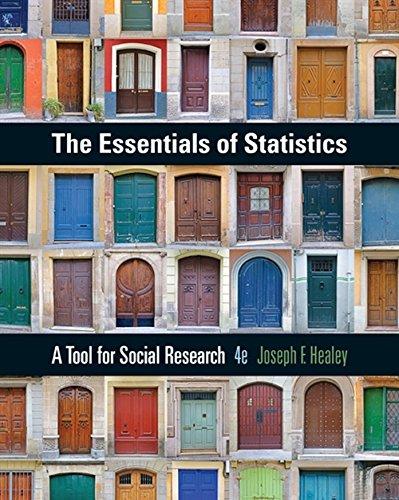SOC A researcher is concerned with the relationship between attitudes toward violence and violent behavior. Do attitudes
Question:
SOC A researcher is concerned with the relationship between attitudes toward violence and violent behavior. Do attitudes “cause” behavior? Do people who have positive attitudes toward violence have higher rates of violent behavior? A pretest was conducted on 70 respondents; among other things, the respondents were asked, “Have you been involved in a violent incident of any kind over the past six months?” The researcher established the following relationship:
Attitude Toward violence involvement Favorable Unfavorable Totals yes 16 19 35 No 14 21 35 totals 30 40 70 The chi square for this table is 0.23, which is not significant at the 0.05 level (confirm this with your own calculations). Undeterred by this result, the researcher proceeded with the project and gathered a random sample of 7000. In terms of percentage distributions, the results for the full sample were exactly the same as for the pretest:
Attitude Toward violence involvement Favorable Unfavorable Totals yes 1600 1900 3500 No 1400 2100 3500 totals 3000 4000 7000 However, the chi square obtained is a very healthy 23.4
(confirm with your own calculations). Why is the full-sample chi square significant when the pretest was not? What happened? Do you think that the second result is important?
Step by Step Answer:

The Essentials Of Statistics A Tool For Social Research
ISBN: 9781305093836
4th Edition
Authors: Joseph F. Healey






